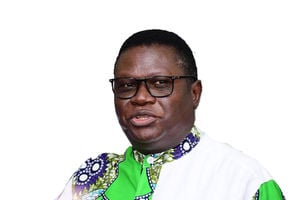Prime
Dilemma of language in our advocacy, activism

AUTHOR: Tricia Gloria Nabaye. PHOTO/FILE
What you need to know:
- Each time we use language that sanitises our causes, we prolong the journey to our goals.
If you live in Uganda today, you are likely witnessing a range of advocacy campaigns for different causes, both online and offline. These campaigns often feature various slogans and hashtags designed to capture attention and mobilise action.
However, I’ve been reflecting on how the effectiveness of these advocacy messages can easily get lost—not only in the strategies employed to achieve their goals but also in the language we use.
By language, I don’t mean vernacular or dialects but rather the relatability and choice of words that shape our messages.
Consider a recent headline that suggested medical interns should pay for their deployment for training. While it is true that university students pay for internships as part of their course programmes, the language of “medical interns” creates a misleading impression.
It suggests these are volunteers still in training, when in fact, these are qualified doctors who must practice under supervision before they can receive their licences. These doctors handle many of the day-to-day services in hospitals. Referring to them merely as “interns” diminishes their professional status and contribution.
Language also affects how we frame our advocacy against corruption. We should start using the term “stealing” more frequently. This word carries a stronger connotation of wrongdoing and indignity than the sanitised term “corruption,” making it more relatable and impactful for both advocates and those committing the acts. When we say “corruption,” the word can feel distant, almost bureaucratic, as though it were a technicality rather than a fundamental moral failure. “Stealing,” however, is a term everyone understands—from children to adults—because it captures the essence of taking what does not belong to you.
Each time we use language that sanitises our causes, we prolong the journey to our goals. Language is crucial to achieving social change, as it determines how well our messages resonate with the public. If we want effective advocacy, we need to build alliances between the middle class and last-mile communities.
However, the challenge of language is not limited to specific issues such as health or corruption; it is pervasive across all causes. Think about the language we use when discussing gender rights, economic justice, or climate change. If our language is too academic, abstract, or elitist, we risk alienating the very people we need to mobilise.
The next time you find yourself leading a campaign, think deeply about the language you use. Start by asking yourself: Is this language inclusive? Is it accessible? Does it speak to the lived experiences of those we are advocating for?. Also, consider involving those directly impacted by the issues in shaping the language and narratives of your campaigns. Grassroots voices add authenticity and relatability, ensuring that your message is not only heard but felt. Invite community members to speak at rallies, share their stories in media, and co-create the slogans and hashtags that define the movement. This is how we build a truly inclusive advocacy framework—one that reflects the voices of all Ugandans, from cities to villages.
As advocates, journalists, community organisers, and citizens, when crafting messages for change, remember that the power of language can either bridge divides or widen them. Let us use it to bring people together, galvanise action, and demand accountability.
The future of advocacy in Uganda will bear the imprint and leadership of everyday Ugandans. Therefore, if you are involved in a campaign today, consider revisiting your messaging. Ask for feedback from diverse voices and refine your language to ensure it is clear, compelling, and accessible. Let’s challenge ourselves to move beyond slogans and hashtags that merely trend online.
Instead, let us craft narratives that cut across social and economic divides, inspiring everyday Ugandans to become part of change.
Ms Tricia Gloria Nabaye serves as the Engagement and Advocacy Lead at Pollicy.




